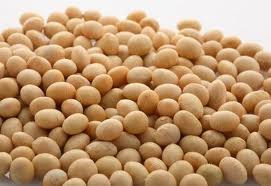
There was a study conducted by an agricultural consulting company, Celeres, from Brazil that states that the majority of soybeans and maize comes from genetically modified seeds. The Celeres Company monitored the crop season of 2010 to 2011 and discovered that more than three-quarters of the land used in Brazil for their crops were planted with genetically modified seeds. Maize crops have increased in area by almost 46% since last season and estimated to increase to 57% of the total area. 325 hectares (10,000 square meters) consists various types of GM which are pest-resistant, herbicide-tolerant, or blend of both of them. This mixture is currently being used in ordinary crop season for the first time. As herbicide-tolerant GM traits are being released, it is limiting the access of technology during the summer and is anticipated to increase in the winter.
We get so many crops from Brazil, how do we know that what we are receiving is not genetically modified? We don’t always know what exactly we are putting in our mouths every day. I never knew that Brazil was such a problem with GMOs. This article was really recent which means this is happening right now and I have never heard anything about GMOs and Brazil before. I never even thought that something existed like a combined GM trait like there is with the pest-resistant and herbicide-tolerant.
1. How can this be beneficial to our society?
2. With the economy the way it is, would the price of these foods increase or decrease?
3. Have you read anything about Brazil and GMOs?
4. What can you tell me about genetically modified food?
http://www.gmo-compass.org/eng/news/550.docu.html

I always knew that a lot of our food was origanally from Brazil but I don't remember there being a label saying that they were genetically modified. This article is even saying that more than three quarters of the land in Brazil were planted with gentically modified seeds. I also could have guess that they would soon have a combined GM trait from when we did the GMO packet and the website always talked about pest resistant and herbicide tolerant traits but never combined just together. This aticle talks about how Brazil's soybeans are mostly genetically modified which reminds me of the experiment we are doing in class about the genetically modified soybeans and if they will be tolerant to the herbicide unlike the non genetically modified soybean. It just goes with my hypothesis that the genetically modified soybeans will survive and take over.
ReplyDeleteTo answer Colby's first question, this can be beneficial to our society because genetically modified seeds can produce quicker and supply more food, so our food production will increase which will make the demand for food decrease. To answer Colby's second question, I believe the price of foods will decrease because if the food production goes up then the supply will go down and the price won't have to be as high since there is more of it.
Honestly I never even knew that most of our food came from Brazil. The biggest problem withn GMO's is that they can spread easily and that the can cause the orginal species to die off. Now I if the Brazil farmers were not trying to plant GMO's then they problity have have some GMO's in it though. If they diid have this problem what would they do about it. Some farmers in the US are also having the same problem.
ReplyDeleteTo answer Colby's second question I think the price would go down because the GMO's grow faster and they are cheaper to buy.
It surprises me that GMOs are so popular in Brazil. Since the climate in most of that country is warm and has gooding weather for growing crops, you wouldn't think that GMOs would be in such high demand. This makes me wonder how popular GMOs are in other countries around the world. It also makes me wonder if the Brazilian governments has any restrictions in place pertaining to the production of GMOs. I am for the use of GMOs but i still think there should be restrictions on them so they do not get out of control.
ReplyDeleteI found this article about how and why GMOs became legal in Brazil and thought it was pretty interesting:
http://www.usatoday.com/tech/news/biotech/2005-03-01-brazil-gmo-ban_x.htm
I knew that a large amount of our food came from Brazil, but not once do I remember seeing or hearing that any of it was genetically modified. It makes me wonder what I am actually putting in my mouth. Is it all natural? Or has it been genetically modified? The article says that 75% of the land is covered with GMO crops. Another thing I wonder is if Brazil has made any laws on the amount of GMOs planted. This reminds me of the experiment we are doing currently in class with the soybeans. And from this article, I can see that my hypothesis will come true which is that that the GMO soybeans will live and the natural ones wont.
ReplyDeleteHere is a picture that I found of GMO soybeans. I thought that it was funny, but completely true.
http://momsforsafefood.net/wp-content/uploads/2010/12/soybean_1_608.jpg
I find it extremely difficult that our country didn't know that we were receiving GM crops. I mean we'd either have to be completely oblivious (which I don't think people would allow), or we're ignoring the problem and twisting the facts. Brazil has many GM crops, but personally I don't believe that this is a huge issue until you get into shipping items. I don't we should be necessarily mad at Brazil for this because its our job to watch what we have, not theirs.
ReplyDeleteIn response to the 3rd question, I haven't heard much of anything about these issues because this isn't really something that people give much thought about. As long as people aren't dying and the food tastes good then it doesn't really grab ahold of peoples' interest.
here's my link: http://news.alibaba.com/article/detail/agriculture/100003983-1-brazil-gmo-corn-debuts-november.html
ReplyDelete